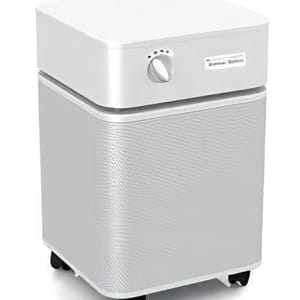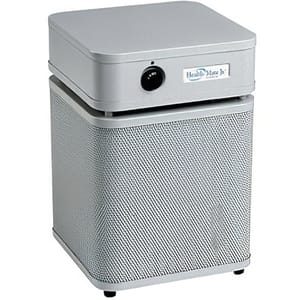HEPA Air Purifiers | Air Purifiers
-

Austin Air HEGA Allergy Machine
$1,530.00 View product This product has multiple variants. The options may be chosen on the product page -

Austin Air Bedroom Machine
$1,990.00 View product This product has multiple variants. The options may be chosen on the product page -

Austin Air HealthMate Jr. Perfect for smaller spaces
$1,100.00 View product This product has multiple variants. The options may be chosen on the product page
HEPA stands for High Efficiency Particulate Air. HEPA filters remove up to 99.97% of airborne particles from the air that passes through them. They are one of the most common types of air filters used in homes and commercial buildings, and are renowned for their efficiency at trapping microscopic particles such as dust, pollen, mold spores, and smoke. Those filters are a superb choice for those looking to improve the air quality in their home or business.
How does HEPA works?
HEPA filters are effective at trapping airborne particles such as dust, pollen, mold spores, and other allergens. These filters are composed of a mat of randomly arranged fibers that trap particles through a physical process. They arranged the fibers in a crisscross pattern, creating tiny pockets of air that capture particles as air flows through the filter.
When air passes through an HEPA filter, the particles become trapped in the fibers. This is due to the tiny size of the particles and their tendency to cling to the fibers. As the air travels through the filter, more and more particles become stuck in the fibers, until the filter becomes clogged and must be replaced.
They rate air filters based on the size of particles that they can capture. A true HEPA filter can capture particles as small as 0.3 microns. This means that it can capture some of the smallest particles in the air, such as bacteria, viruses, and smoke particles.
HEPA filters are extremely effective at trapping airborne particles, and they are becoming increasingly popular in homes and businesses. They can help to reduce the number of allergens in the air, improving indoor air quality and helping to reduce the symptoms of allergies and asthma.